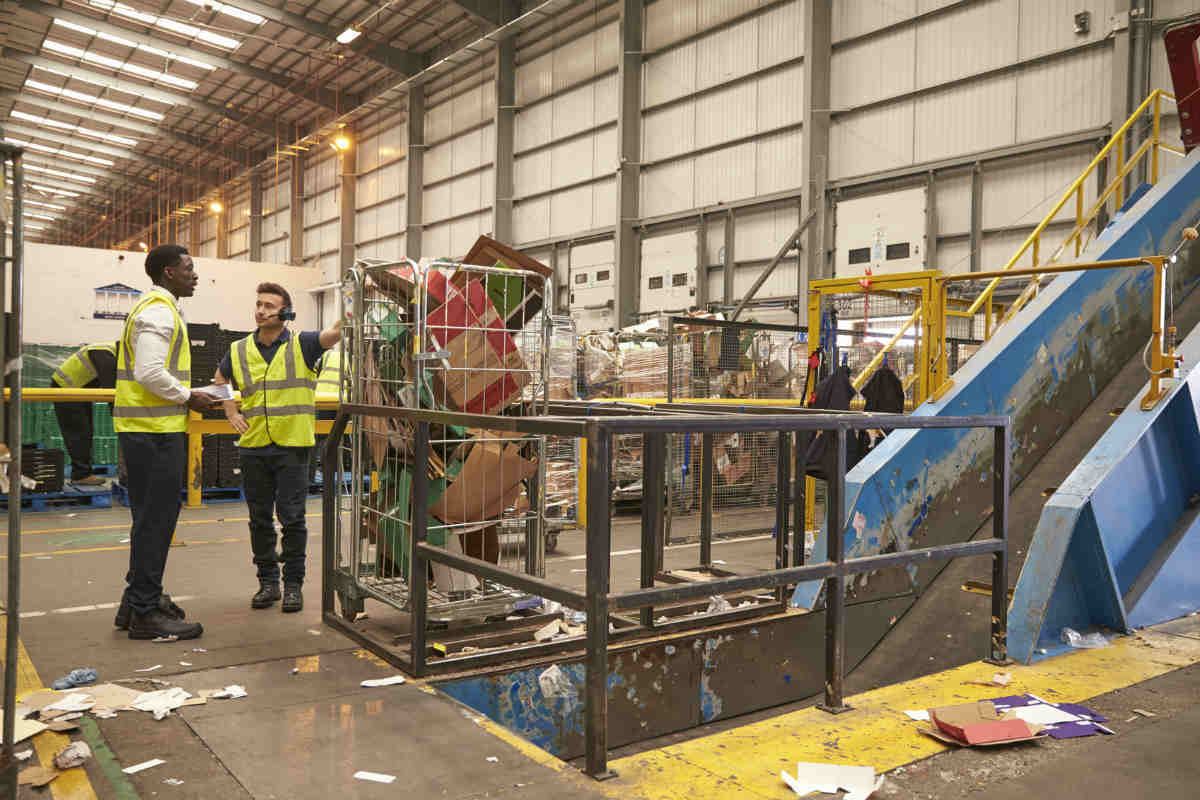The recycling industry has created many job opportunities – it also is one of the most hazardous industries to work in.
 According to the U.S. Environment Protection Agency (EPA), sending a ton of waste to a landfill or an incinerator reduces job opportunities by ten times more than if it was sent to a recycling unit. Just as the recycling industry creates job opportunities, it also is one of the most hazardous industries to work in. EPA statistics reveal that recycling industry workers have an elevated risk of fatality and injury at work. Injured workers often do not get enough compensation for their injuries and some injured workers are unaware of the fact that they can hire a St. Louis worker compensation lawyer to protect their legal rights.
According to the U.S. Environment Protection Agency (EPA), sending a ton of waste to a landfill or an incinerator reduces job opportunities by ten times more than if it was sent to a recycling unit. Just as the recycling industry creates job opportunities, it also is one of the most hazardous industries to work in. EPA statistics reveal that recycling industry workers have an elevated risk of fatality and injury at work. Injured workers often do not get enough compensation for their injuries and some injured workers are unaware of the fact that they can hire a St. Louis worker compensation lawyer to protect their legal rights.
Hazardous Materials
Hazardous materials such as used needles, poisonous chemicals and noxious items, shards of glass, rotten food, dirty diapers, and dead animals often make their way into the recycling system, posing a serious threat to the health of workers. Such materials can cause a number of illnesses and injuries.
Dangerous Equipment
Recycling industry workers use heavy machinery, including forklifts, conveyor belts, crushing machines, balers, front-end loaders, huge bales of sorted waste, and compactors. If these types of machines are handled improperly, they can seriously injure a worker, causing permanent disability and even death.
Sorting Trash by Hand
Despite available machines, a large part of the initial sorting of the recyclable waste takes place by hand. Continuous movements like sorting, bending, and picking can lead to repetitive stress injuries, fatigue, and many musculoskeletal disorders over a period of time. According to data collected from the Occupational Safety and Health Administration (OSHA), 2 out of 3 workers suffer job-related injuries and about 57% of injured workers suffer from musculoskeletal back injuries.
Uncomfortable and Unsanitary Surroundings
Recycling workers have complained of unsanitary work areas and lack of cleanliness. Many also complain that it is uncomfortable to work in recycling facilities due to excessive heat, cold, toxic waste giving out smell and dust, and exposure to high levels of noise and vibrations. These conditions can expose a worker to hearing disorders and loss of hearing, sleep disorders, extreme stress, and cardiovascular disorders.
Temporary Workers
A large number of workers in the recycling industry work as temporary employees. While companies save on hiring costs, workers lose out on employee benefits. Temporary staff is paid less and undergo less training that is essential for their safety. Temporary workers may not readily open up to their managers about the hazardous environment or lack of training and may not report injuries out of fear of losing their jobs.
St. Louis Workplace Injury Law Firm
Recycling facilities are required to take appropriate steps to make the basic working environment less hazardous for their employees. This includes providing adequate training, conducting regular inspections of the machinery and recycling plants, ensuring sufficient staffing, providing compensation benefits, and providing essential protective gear for workers. Employees who have been injured at work should consult a St. Louis workplace injury lawyer to ensure that they receive the benefits that they deserve. Call The Law Office of James M. Hoffmann at (314) 361-4300.
Workers & Industry
Workers | Industry
Airline Injuries
Auto Mechanic Injuries
Baggage Handler injuries
Bricklayer Injuries
Building Construction Injury
Carpenter Injury
Chemical Plant Accident
Coal Mining Accident
Commercial Food Industry Work Injury
Commercial Truck Accident
Concrete Worker Accident
Construction Accident
Cosmetologist Work Injury
Electric Company Workers Injured
Injured Electrical Worker
Electrician Accident
Elevator Worker Accident
Factory Accident
Farm Accident
FedEx Truck Accident
Firefighter Injuries
Processing Plant Injuries
Government Workers Comp
Healthcare Injuries
Injured Work From Home
Hospital Work Injury
Hotel Workers Injuries
Industrial Workplace Accidents
Iron Worker Accident
Janitor Injuries
Union Worker Accidents
Laboratory Accident
Manufacturing Injuries
Meat Packing Injuries
Metal Fabrication Accidents
Mining Accident
Working Multiple Jobs
Nail Salon Work Injury
Work-Related Accidents on Night Shift
Nurse Injured at Work
Nursing Home Workers Injury
Office Accident
Oil Field Injury
Outdoor Workers Injured
Pipe Fitter Occupational Injury
Plumber Accident
Post Office Accident
Poultry Work Injury
Public Safety Officer Injuries
Railroad Worker Injuries
Recycling Plant Accidents
Restaurant Injury
Retail Accidents
Road Construction Accident
Roofing Accident
Sanitation Worker Injuries
Seasonal Worker Injured
Security Accident
Sewer Accidents
Summer Job Work Injury
Teacher Injured
Textile Mill Accidents
Transit Workers Accident
Truck Driver Injuries
Underground Mining Accidents
Utility Worker Accident
Veterinarian Injured
Warehouse Injuries
Window Cleaner Accident
